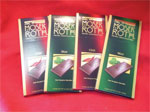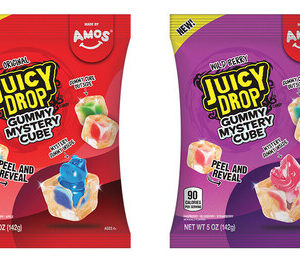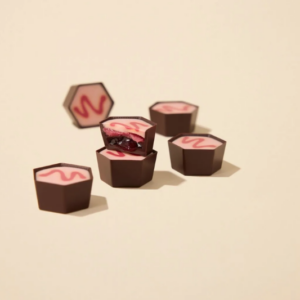Private label vs brand names

Private label confectionery is at a different stage of development in Germany compared to Austria and The Netherlands. Confectionery products are often associated with indulgence and many consumers perceive sweets as a luxury, for which they are happy to spend more. Hence, brand image and positioning still play a major role in consumers’ purchase decisions. Also, innovations in confectionery are usually driven by manufacturers of branded products, whereas private label products are often perceived as cheaper copycats, usually positioned at the lower end of the market.
Private label is relatively well established in Germany, even for confectionery products where consumers still go for brand names. With 14 per cent value share of private label, Germany is the country with the strongest presence for confectionery. This is primarily driven by private label products from the top discounter giants Aldi Group and Lidl & Schwarz Stiftung & Co. Also, high price sensitivity of a large number of German consumers contributes to the high penetration of private label. In comparison, private label in Austria and the Netherlands only account for 11 per cent of confectionery value share. In these countries, consumers still perceive confectionery as indulgent impulse products, and most consumers still go for branded confectionery products – perceiving these as small every day luxury treats.
Gum is tough to crack
Up to 2012, private label has had the least penetration in gum products across Germany and neighbouring countries. Gum is a more consolidated field, with strong dominance of Mars in Austria and Germany, and Kraft Foods in the Netherlands. These multinationals are the clear drivers of innovation in gum and in addition, consumers show more trust in brands with respect to the functional purpose that gum serves. In contrast, the highest penetration of private label is in sugar confectionery for Germany and Austria. Relatively lower costs of ingredients – when compared to chocolate confectionery – make sugar confectionery a more attractive target for retailers to offer private label products. Also, copycats within sugar confectionery are usually more accepted by consumers as quality and image do not play as big a role as in chocolate confectionery.
Luring consumers
There is still a long way to go before private label can attain a more significant status in Germany and other countries, but retailers have definitely stepped up their efforts in recent years. The innovation rate from retailers for their private label confectionery products has accelerated, with more emphasis on quality. In the Netherlands, for instance, top supermarket chain Albert Heijn has launched more private label products with more premium positioning. In Germany, the discounters have increasingly offered premium private label products, such as JD Gross for Lidl and Moser Roth for Aldi, in addition to their basic economy brands. This contributes to a higher differentiation which allows discounters to increase their presence within private label confectionery, by targeting different consumer groups. These premium private label products also use fancy packaging designs, especially for seasonal offers, which helps them to better compete with the creative ideas and innovations coming from brand manufacturers. Likewise one of the leading Austrian supermarket chain, Spar Österreichische Warenhandels, launched its premium range ‘Spar Premium’ in late 2010, comprising a premium chocolate range.
The economic situation
In Germany, the Netherlands and Austria alike, private label confectionery suffered from the recovery of the economy from 2010 to 2012, causing many consumers to upgrade to branded products again. Also, the increased intensity of promotional activities by some of the leading confectionery manufacturers, such as Kraft Foods , Mars and Ferrero Group, prompted consumers to return to big brands over private label products.
The imminent euro zone crisis also represents a potential threat to the future economic performance of Germany, the Netherlands and Austria alike. Another serious downturn would affect consumers’ confidence and thus their shopping and spending behaviour. In this case, private label in general, and in confectionery in particular, is likely to benefit from the economic situation in all three countries under review. While in Germany discounters are expected to drive further growth of private label confectionery products, it will most likely be the leading supermarket chains in the Netherlands and Austria. However, as already seen during the most recent recession, consumers will remain reluctant to cut corners when it comes to confectionery, as it is generally seen as an affordable luxury.
The future ahead
In order to be able to compete with branded products, over the next couple of years private label manufacturers need to further increase their efforts to improve both image and quality of their products. Becoming increasingly aware of the economic advantages of own brands, such as better profit margins or greater autonomy when it comes to pricing, retailers are expected to increasingly focus on the sophistication and premiumisation of their own brand ranges. Ethical certification, for instance, of confectionery products is expected to be one of the future emphases, as already seen in Germany with Lidl’s Fin Carré UTZ certified confectionery range. In Austria, Spar Premium brand has just been extended by a Fairtrade certified and organic chocolate tablet range in 2012. In the Netherlands Albert Heijn is set to strengthen its presence in the premium segment thanks to its own brand Albert Heijn Excellence. This development will most likely also have an impact on the confectionery market of these countries. Meanwhile, manufacturers of branded goods will not stand back quietly. In order to defend their market position, multinationals, such as Kraft Foods , Mars or Ferrero Group, are expected to take appropriate marketing measures, such as aggressive price promotions, which will simultaneously reduce the incentive for consumers to buy private label and hence possibly limit growth opportunities. The battle between retailers and manufacturers for share in uncertain economic climate in the next years is guaranteed to liven up the competition, and will ultimately benefit consumers thanks to more choices on offering.
By Heidi Lanschützer and Katharina Oldenkotte, research analysts at Euromonitor International






